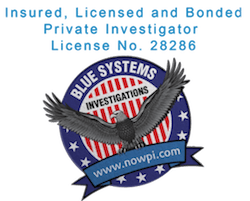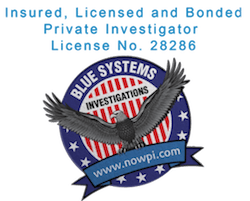Search Our Site
Latest Blog Posts

Follow us on Facebook
Certification
CA Private Investigator
License No. 28286
PI Services
Locations Served
Client Intake Forms
Los Angeles Process of Serve
Private investigators play a crucial role in locating individuals who are difficult to find, particularly for legal services. When traditional methods of locating and serving individuals fail, private investigators turn to a variety of specialized techniques and resources to track them down.
Some common methods used by private investigators in challenging cases include:
- Open Source Intelligence (OSINT): Investigators gather publicly accessible information about the individual.
- Social Media Platforms: They analyze recent posts, location check-ins, and updates that could provide clues about the person's whereabouts.
- Online Forums & Communities: By monitoring participation in forums or online groups, investigators may uncover valuable information. Public databases, such as real estate records, vehicle registrations, business filings, and voter registration, also offer useful insights.
- Skip Tracing: This involves using databases to trace individuals who have either disappeared or are deliberately avoiding detection.
- Specialized Databases: Investigators access databases that aggregate data from various sources, such as credit reports, utility bills, and rental applications, which reveal recent addresses or financial transactions.
- Phone and Email Records: Changes to phone numbers or email addresses may also help pinpoint a person’s location.
- Surveillance: Physical tracking is another key method used to locate individuals.
- Physical Surveillance: Investigators observe locations where the individual is likely to appear, such as their home, workplace, or frequent hangouts.
- Vehicle Tracking: Access to vehicle registration data can help trace a subject's movements.
- Interviews: Speaking with the person’s acquaintances—friends, family, neighbors, or co-workers—can provide useful information about their activities and possible locations.
- Professional Networks: Investigators often collaborate with a nationwide network of other professionals, including private investigators in different jurisdictions, to locate individuals who may have relocated.
- Law Enforcement and Government Records: While private investigators don’t have the same access as law enforcement, they can still obtain valuable information through official and legal channels.
- Pretexting:
This technique involves investigators adopting false identities to gather information about the individual.
- Posing as a Surveyor or Service Provider: Investigators may contact acquaintances under the guise of a representative from a utility company or phone service provider to gather information.
- Pretending to Be a Prospective Employer: They may create fake job postings to trick the individual into providing personal details.
- Court and Legal Records: Investigators review court documents to find details such as ongoing legal cases, bankruptcy filings, or civil suits that may contain updated address or employment information.
- Digital Footprinting: Investigators use advanced digital techniques, such as IP address tracing, to track individuals who maintain an online presence.
- IP Tracing: By analyzing IP addresses from emails or social media, investigators can narrow down the individual's location.
- Email and Photo Metadata: Investigators examine metadata in emails and digital images for geolocation data or other indicators of the person’s whereabouts.
- Postal Records: Investigators can request information from the postal service to check if the individual has filed a change of address form, helping to determine their current or previous locations through legal channels.
- Process Servers: Hiring professional process servers is essential in cases where individuals are actively avoiding being served. These professionals are adept at ensuring legal papers are delivered, even in evasive circumstances.
By combining these approaches, private investigators improve their chances of locating individuals and successfully delivering legal services, even in the most difficult cases.









